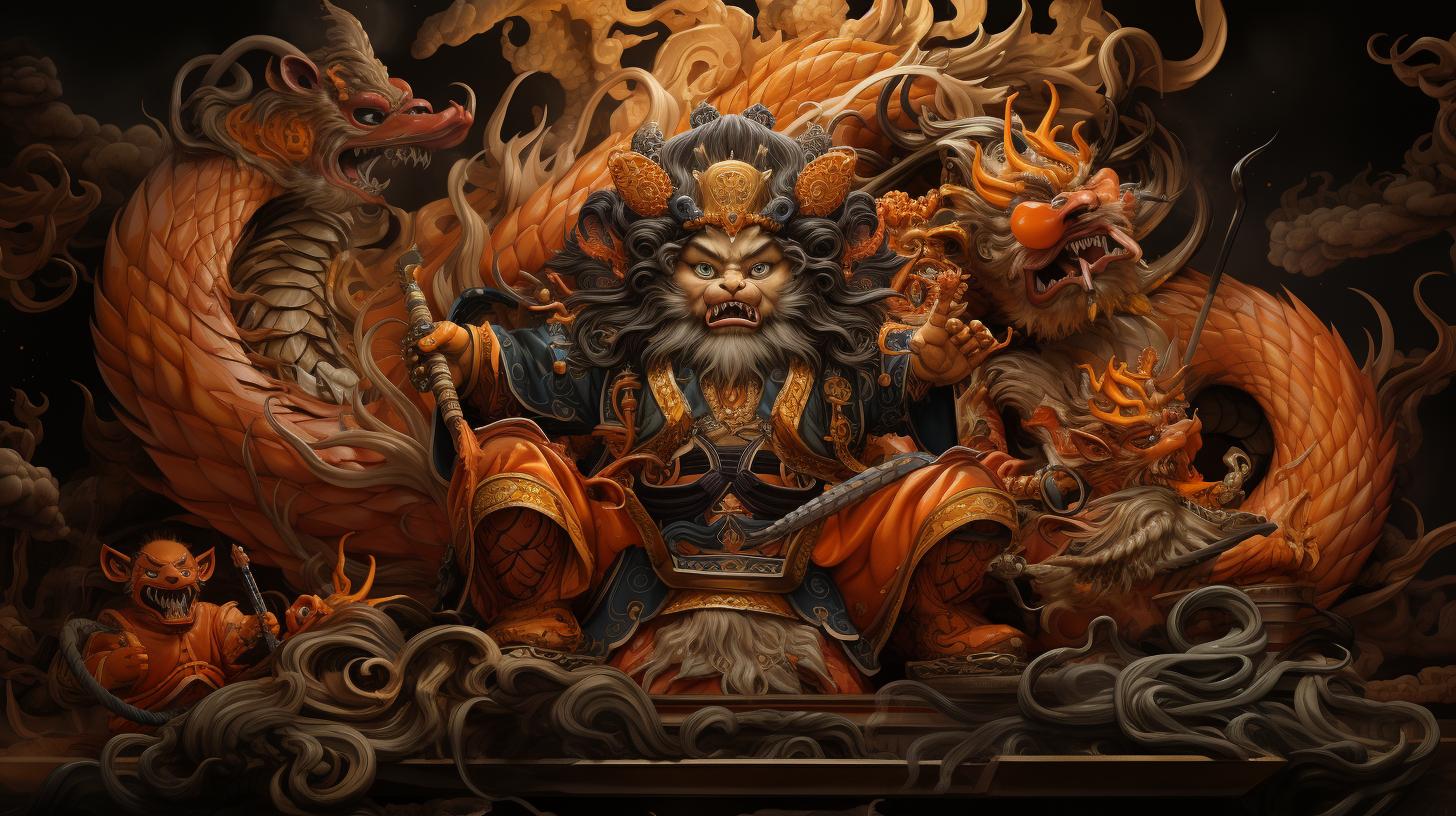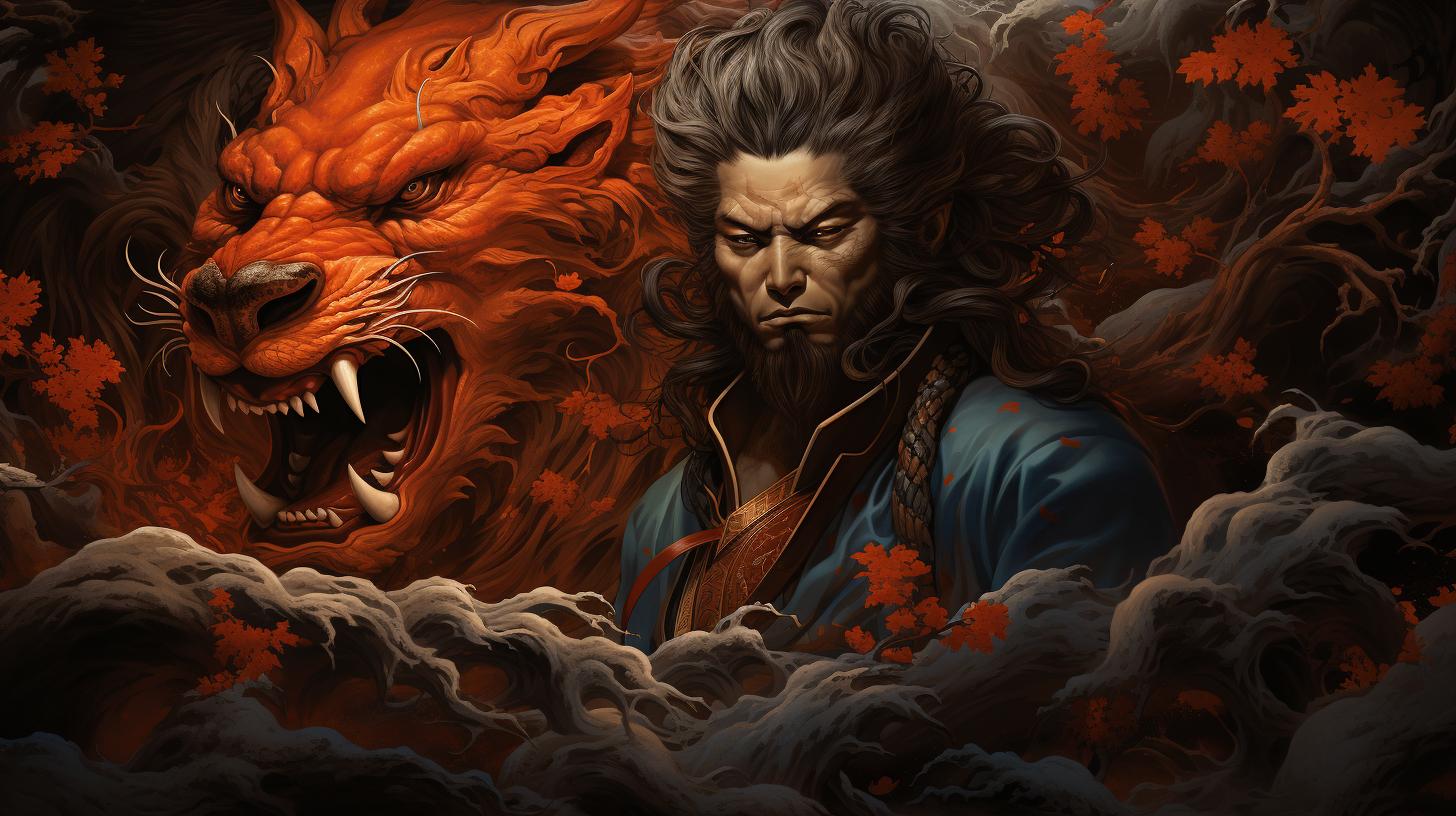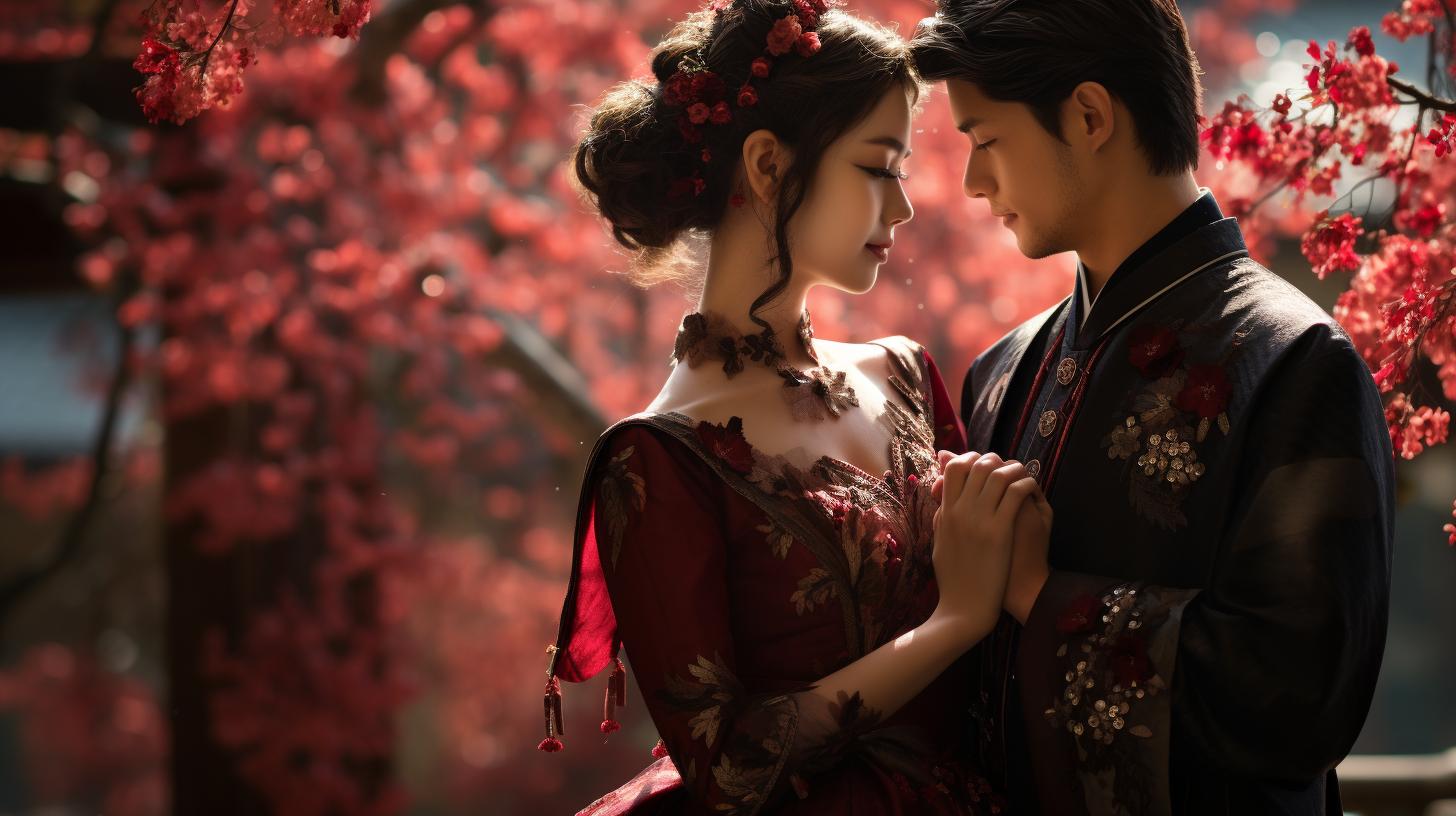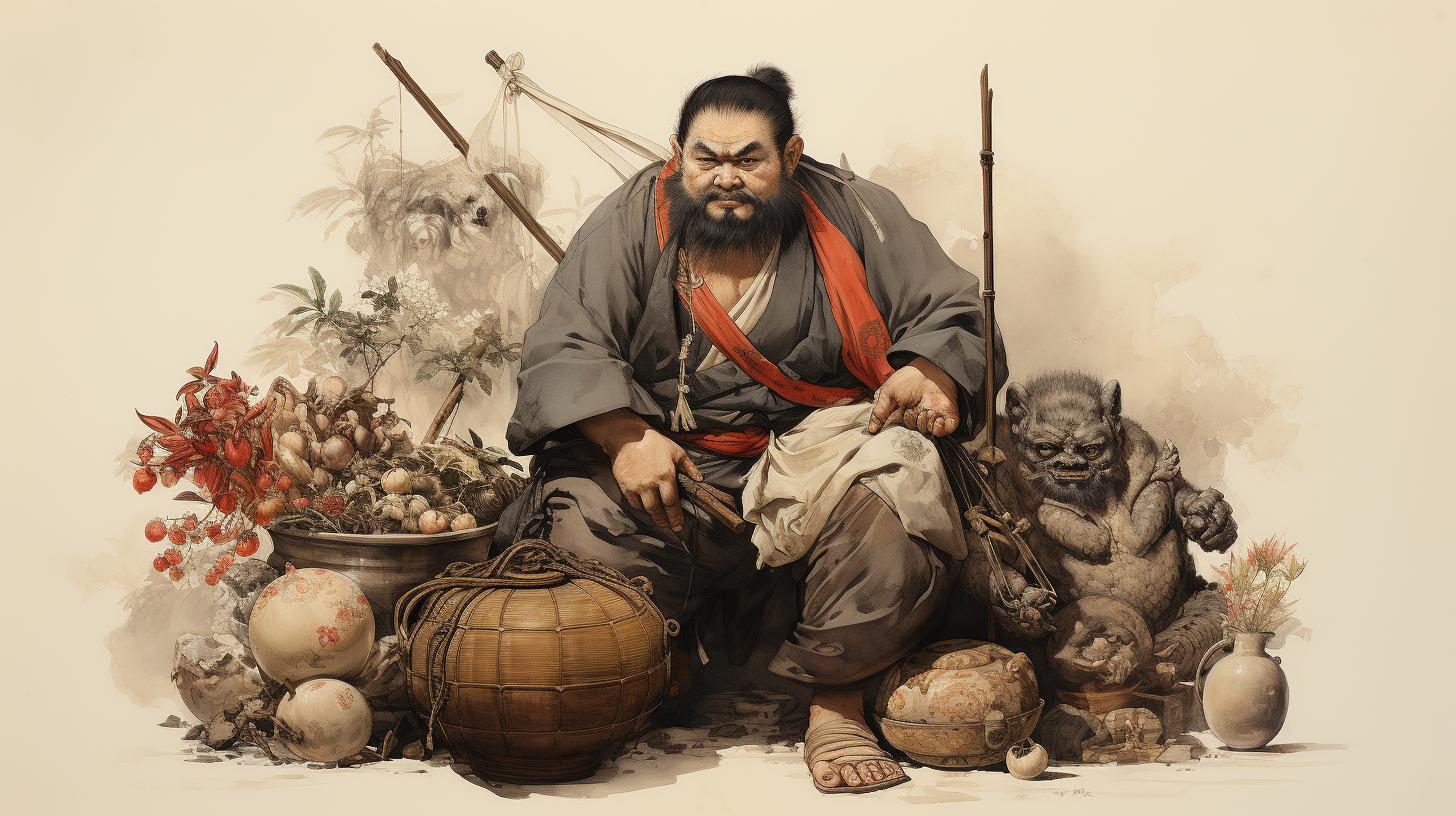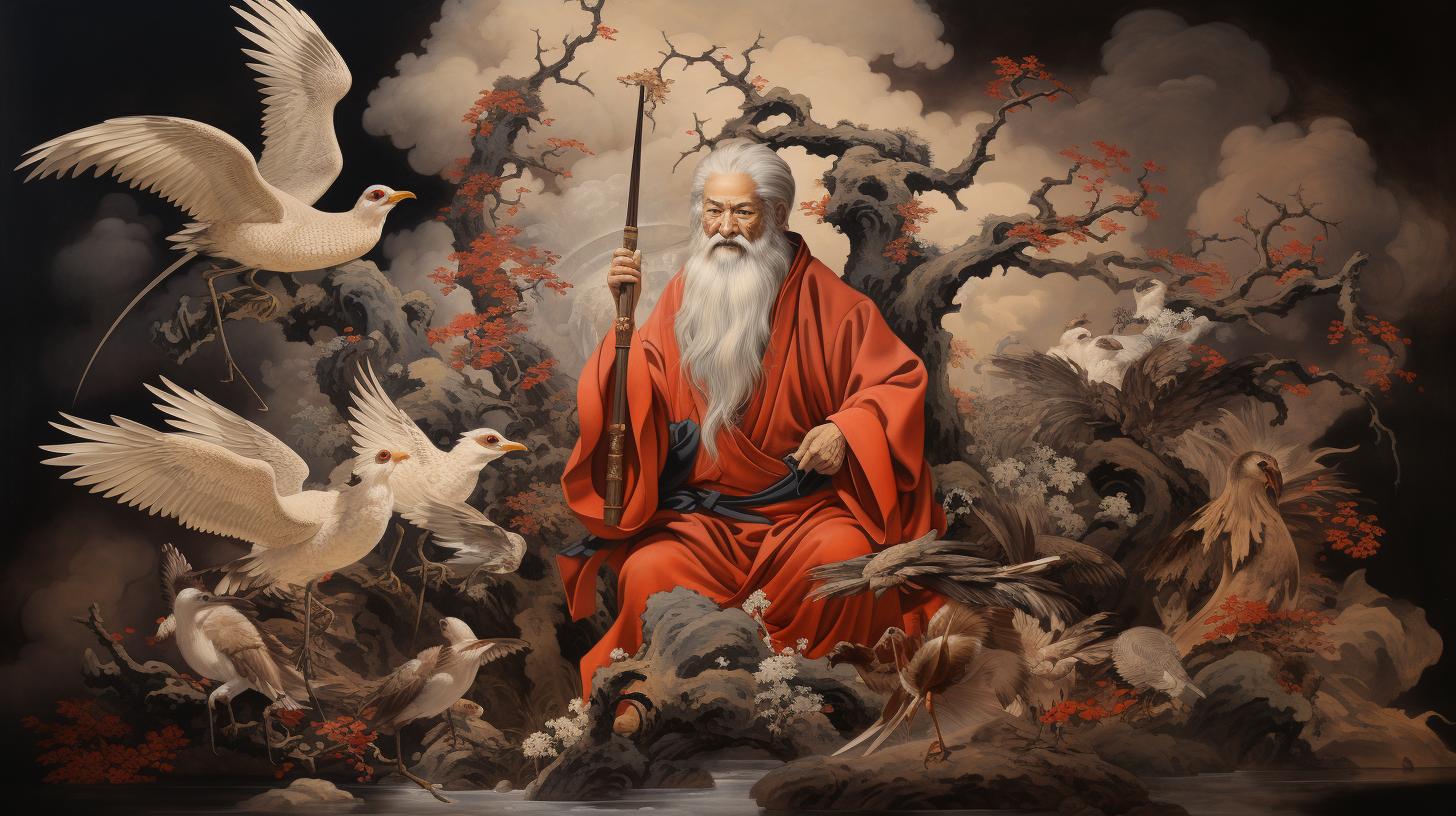Jizo Japanese Mythology: The Beloved Protector of Children and Travelers in Japanese Culture
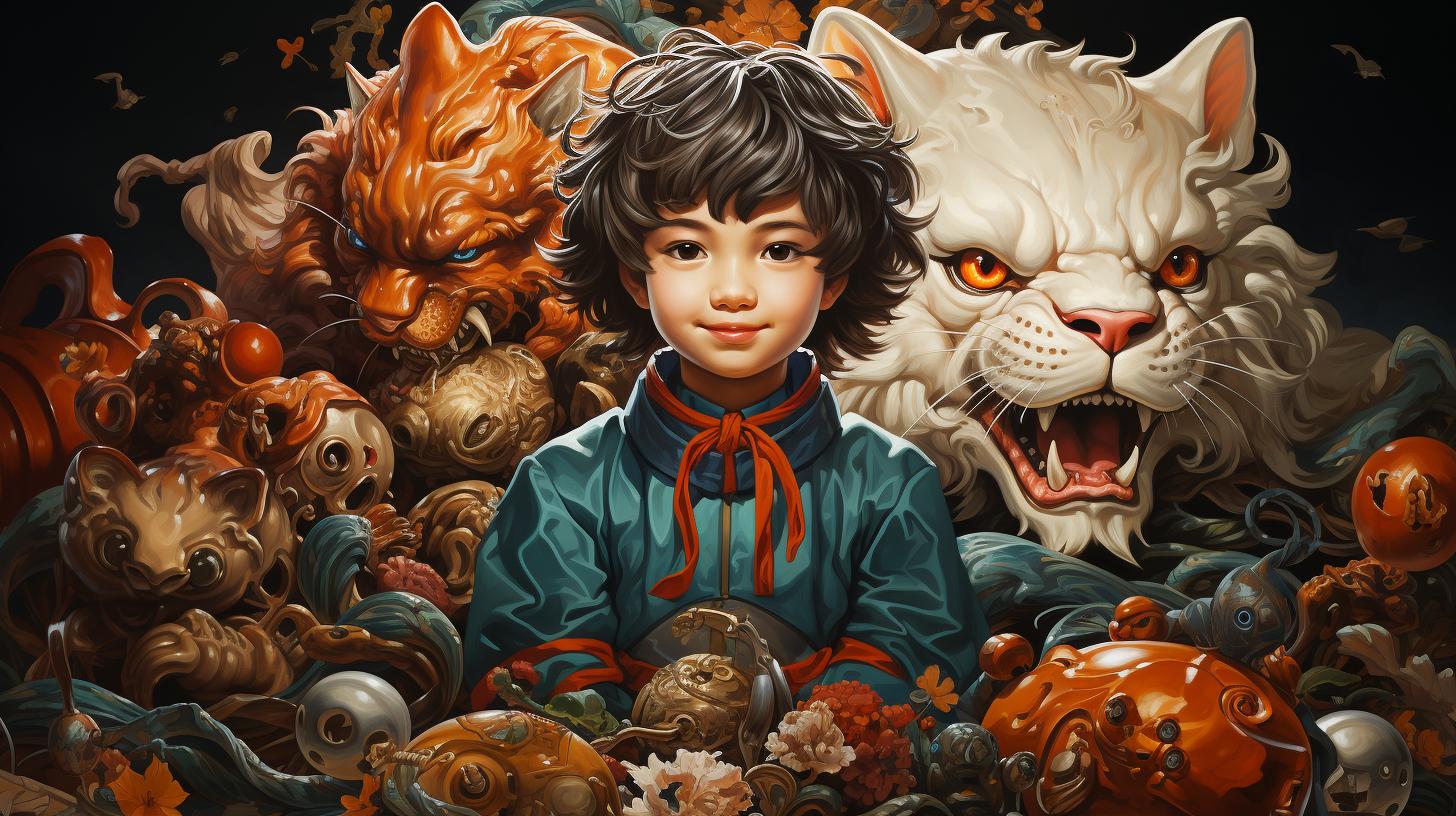
Jizo Japanese mythology is a beloved part of Japanese culture, characterized as a kind protector of children, travelers, and firefighters. Jizo statues can be found along hiking trails and pilgrimages, dressed in red bibs as a symbol of protection.
Additionally, Jizo is connected to Buddhism, and is believed to save people and deliver faithful followers to the western paradise of Amida. Stay tuned to discover the origins and meanings behind Jizo statues, how Jizo is celebrated in modern Japan, and how Jizo’s mythology has spread across the world.
Jizo: The Beloved Deity of Japanese Mythology
Jizo is a revered protector figure in Japanese culture, known for safeguarding the vulnerable and lost. This beloved deity has become a symbol of safety and comfort in Japan, represented by stone statues found along hiking trails, in temples, and near homes.
The Origins and Importance of Jizo in Japanese Culture
The origins of Jizo beliefs in Japan are complex, as different historical records and religious traditions attribute different attributes to this beloved figure. However, Jizo is closely associated with Buddhism and its teachings on compassion, enlightenment, and rebirth.
One of the most common legends about Jizo refers to his vow to save all living beings from suffering and guide them to enlightenment. He is often depicted carrying a six-ringed staff (shakujō), which represents his role as a protector and guide through the six states of existence that beings pass through (hell, hungry ghost, animal, human, demi-god, god) before reaching enlightenment.
The Role of Jizo as a Protector of Children and Travelers
Jizo’s role as a protector figure expanded over time to include safeguarding children, expectant mothers, travelers, and firefighters. Jizo statues dressed in red bibs are a common sight in Japan, as these bibs are believed to protect against illness and danger.
Another representation of Jizo’s role as a protector figure is the custom of building stone towers by travelers along hiking trails or near cemeteries, as an act of kindness to help the souls of deceased children in their penance and to bring comfort to their families.
Jizo’s Connection to Buddhism and the Afterlife
In Japanese Buddhism, Jizo is regarded as a bodhisattva – a being that has attained enlightenment but returns to the world to help others find salvation. In this capacity, Jizo is believed to save everyone, especially those who have died before completing a pilgrimage or those still suffering from the consequences of past actions (karma).
Jizo’s deep connection to Buddhism is also reflected in the various offerings made to his statues, such as flowers, coins, and sweets, as a sign of gratitude and devotion. Jizo is seen as a figure of hope and compassion, who offers guidance to those lost in the darkness of the afterlife or in the trials of the present world.
- Jizo is a revered protector figure in Japanese culture, known for safeguarding the vulnerable and lost.
- The origins of Jizo beliefs in Japan are complex, as they combine different historical records, religious traditions, and cultural practices.
- Jizo’s role as a protector figure expands over time to include safeguarding children, expectant mothers, travelers, and firefighters, as well as deceased souls in their penance.
- Jizo’s deep connection to Buddhism is also reflected in the various offerings made to his statues, such as flowers, coins, and sweets, as a sign of gratitude and devotion.
- Jizo is seen as a figure of hope and compassion, who offers guidance to those lost in the darkness of the afterlife or in the trials of the present world.
Jizo Statues: Symbols of Protection and Remembrance
Jizo statues are an integral part of Japanese culture, serving as symbols of protection and remembrance for various groups of people.
These stone statues are often found along pilgrimage routes and hiking trails and are believed to protect the spirit of those who died before completing their journey. In this section, we will explore the significance of Jizo statues in Japanese culture, the meaning behind the red bibs often seen on these statues, and the acts of kindness associated with stone towers built in honor of deceased children.
The Significance of Stone Statues in Japanese Culture
Japan has a long, rich tradition of creating statues from stone as symbols of various religious or cultural beliefs. Jizo statues, in particular, are seen as protectors of travelers and children and are often placed along hiking trails and pilgrimage routes as a source of comfort and protection for those on the journey.
These stone statues are a symbol of the ancient culture and tradition that still forms a significant part of the Japanese cultural heritage.
The Meaning Behind Red Bibs on Jizo Statues
The red bibs often seen on Jizo statues are a way of asking for protection for children and unborn babies. In Japanese folklore, it is said that Jizo has a special connection with children, particularly those who have passed away.
The red bibs signify protection from illness and danger, and they are often tied to the statues by people who wish for their children’s health and safety. The practice of dressing Jizo statues with red bibs represents a way to acknowledge the importance of children in Japanese culture and to show respect and compassion towards those who have been lost.
Stone Towers: Acts of Kindness for Deceased Children
Stone towers are often built by travelers as acts of kindness in honor of deceased children. The tradition goes back hundreds of years and has become an accepted part of Japanese culture.
These stone towers are meant to offer a place of peace and rest for the spirits of deceased children and are a way of expressing compassion and love towards them. The act of building these towers is done out of respect for the lost children and their families, and it is seen as a way of acknowledging the importance of children in Japanese culture.
In conclusion, Jizo statues serve as symbols of protection and remembrance in Japanese culture, particularly for children and travelers. The significance of these stone statues can be seen in the meaning behind the red bibs often seen on Jizo statues and the acts of kindness associated with stone towers built in honor of deceased children.
These customs and traditions continue to be an important part of Japanese culture, representing a sense of community and compassion that has been passed down through generations.
Jizo Along the Kumano Kodo Trail: A Journey of Faith
The Kumano Kodo Trail is a network of ancient pilgrimage trails that connect the three sacred shrines of the Kumano Sanzan, located in the Kii Peninsula of Japan. The Kumano Kodo Trail has been a sacred and important route for Japanese pilgrims for over 1000 years.
Today, people from all over Japan and from around the world make the journey along the Kumano Kodo Trail to reconnect with nature, Japanese culture, and spirituality.
Discovering Jizo Statues Along the Kumano Kodo Trail
As you journey along the Kumano Kodo Trail, you will encounter many Jizo statues that have been placed there by locals and travelers alike. These stone statues feature the peaceful and kind characteristics of Jizo and act as protectors of those who journey along the trail.
Many of these Jizo statues have been adorned with red bibs, which are believed to protect against illness and danger.
As you make your way along the trail, you will also come across small shrines and altars that are dedicated to Jizo. These shrines are sanctified spaces that act as places of rest and reflection, and they offer an opportunity for pilgrims to connect with Jizo and their spiritual journey.
Legendary Stories of Jizo and the Kumano Kodo Trail
One of the most unique and legendary stories of Jizo on the Kumano Kodo Trail is that of the Jizō-bana (Jizo’s Flower), a small flower that can only be found along the Kumano Kodo Trail.
According to legend, the Jizō-bana grew where Jizo placed his staff while waiting for a child who was late for a meeting. The flower is said to bloom to this day in memory of Jizo’s kindness and patience and is seen as a symbol of the preservation of life by the deity.
Another legendary story involves the statue of Jizo located at the Okunoin Cemetery in Koyasan. According to legend, the statue changes position overnight, moving down the hill to the resting place of the deceased children.
Many visitors to the cemetery have reported seeing the statue in different positions, leading to the belief that Jizo is protecting the spirits of the children who lay at rest there.
The Importance of Jizo and Buddhism During Pilgrimage
Jizo’s connection to Buddhism is an important aspect of pilgrimage along the Kumano Kodo Trail. Jizo is considered a bodhisattva, a being who has attained enlightenment and chooses to remain in the world to help others achieve enlightenment.
As such, Jizo is seen as a protector and guide for those on the journey to enlightenment.
As pilgrims travel the Kumano Kodo Trail and encounter Jizo statues and shrines, they have the opportunity to connect with Jizo as a bodhisattva and the greater Buddhist tradition. This connection can be a source of comfort and guidance as pilgrims navigate the physical and spiritual challenges of the pilgrimage.
Jizo in Modern Japan: Traditions and Celebrations
Jizo continues to be a significant figure in Japanese culture and is celebrated through various traditions and festivities in modern-day Japanese society. This section will explore Jizo Festivals and the New Year Celebrations in Japan, Jizo as a Guardian Deity in Modern Japanese Society, and the Cultural Significance of Jizo Statues in Contemporary Japan.
Jizo Festivals and the New Year Celebrations in Japan
Jizo festivals are held throughout Japan, with the most significant being the Jizo Spring Festival held in Tokyo’s Zojoji Temple. This festival celebrates the arrival of spring, and visitors have the opportunity to dress the Jizo statues with bibs and hats.
The New Year’s holiday in Japan is also closely linked to Jizo, with the belief that Jizo protects us during the transition to a new year. Many families visit Jizo shrines at the start of the year to pray for the safety and health of their loved ones.
Jizo as a Guardian Deity in Modern Japanese Society
In modern Japan, Jizo is also regarded as a guardian deity and is associated with good luck, prosperity, and protection. Jizo statues are often placed in homes, schools, and public places to ward off evil spirits and protect against accidents and misfortunes.
Jizo is also believed to be a powerful healing deity, and some people leave offerings at Jizo statues as a way of seeking protection and healing.
The Cultural Significance of Jizo Statues in Contemporary Japan
In contemporary Japan, Jizo statues occupy a significant place in Japanese culture and continue to serve as symbols of protection and remembrance. They are regarded as powerful spiritual objects, and many people believe that they are imbued with divine power and mystical energy.
Jizo statues have also become popular souvenirs and good luck charms, with mini Jizo statues and keychains being sold at tourist sites and in souvenir shops.
- Jizo statues represent the important role that Buddhism and mythology play in Japanese culture today.
- They are also a testament to the resilience and enduring power of Japanese traditions and spiritual beliefs.
- The popularity of Jizo in modern Japan demonstrates that he continues to occupy a significant place in Japanese society and culture.
In conclusion, Jizo remains a beloved and revered deity in both Japanese mythology and culture.
Jizo Festivals and the New Year Celebrations in Japan, Jizo as a Guardian Deity in Modern Japanese Society, and the Cultural Significance of Jizo Statues in Contemporary Japan all demonstrate the importance of Jizo in contemporary Japanese society and culture.
Jizo Around the World: International Recognition and Interpretation
International Buddhist communities have been influenced by Jizo’s mythology, and the beloved deity has spread beyond Japan. Here, we’ll explore Jizo’s impact around the world.
Jizo’s Influence on International Buddhist Communities
Jizo is a significant figure in Buddhism, and as such, has been incorporated into many communities outside of Japan. His kind nature and protective qualities have made him popular among Buddhist followers.
In particular, Jizo is associated with the rituals and practices of Shingon Buddhism, which has a substantial presence in countries such as Taiwan and Korea. Tibetan monks, too, have adapted Jizo’s enduring mythology into their teachings.
The Spread of Jizo Mythology and Statues Beyond Japan
Jizo’s worldwide popularity is evident from the proliferation of statues dedicated to him around the world. The figure of Jizo can be found in many countries, including China, Korea, and Thailand.
Last year, a temple in Hawaii unveiled a new statue of Jizo, and it has become a popular location for Buddhist pilgrimages. In the West, statues of Jizo are commonly sold as decorative items, but many people remain interested in his mythology and the peace he represents.
Interpretations of Jizo in Western and Non-Buddhist Cultures
Jizo’s influence has even spread into Western and non-Buddhist cultures. In the West, many people consider Jizo to be a lucky charm, and mini-statues are often kept in cars or on desks as a protective talisman.
Jizo has also influenced contemporary art, with many artists incorporating him into their work. In non-Buddhist cultures, Jizo is often interpreted as a figure of protection and kindness, similar to the way he is viewed in Japan.
Children’s authors in particular have found inspiration in Jizo, utilizing his mythology in their stories. In conclusion, Jizo’s impact extends far beyond Japan. His mythology has spread across the world, influencing everything from religion to art.
Jizo’s kind and protective qualities resonate with people from all walks of life, making him a beloved and important figure in global culture…..

